10 Books Psychiatric Clinicians Will Love

One of my favorite quotes is from Mr. Henry Giles. He said, “The silent influence of books, is a mighty power in the world; and there is a joy in reading them known only to those who read them with desire and enthusiasm. Silent, passive, and noiseless though they be, they yet set in action countless multitudes, and change the order of nations.”
Without further ado, here are 10 books psychiatric clinicians will love!
Did I ever mention that I like books? Maybe I forgot to tell everyone how much I really love reading? I can’t quite remember if I ever explained my wild obsession with books?
Unhinged: The Trouble with Psychiatry
By Daniel Carlat
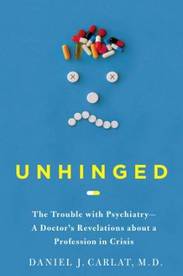 Unhinged: The Trouble Psychiatry, Daniel Carlat addresses a variety of controversial topics including the DSM (otherwise known as the “bible” of psychiatry), the over reliance on psychotropics, and the misuse of psychiatric providers as “hired guns” for the pharmaceutical industry. The book is short, to the point, and fascinating. My favorite chapter (#10) offers his creative solutions to these problems. He briefly mentions psychiatric NPs (pg. 209-210). Thanks for the shout out Dr. Carlat!
Unhinged: The Trouble Psychiatry, Daniel Carlat addresses a variety of controversial topics including the DSM (otherwise known as the “bible” of psychiatry), the over reliance on psychotropics, and the misuse of psychiatric providers as “hired guns” for the pharmaceutical industry. The book is short, to the point, and fascinating. My favorite chapter (#10) offers his creative solutions to these problems. He briefly mentions psychiatric NPs (pg. 209-210). Thanks for the shout out Dr. Carlat!
Personality Disorders In Modern Life
By Theodore Milton
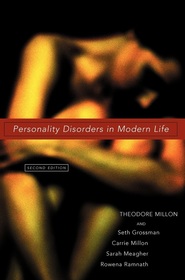 Hands down, Personality Disorders in Modern Life is my favorite (need I say best and most comprehensive) book on the topic of personality disorders. It covers antisocial, avoidant, obsessive compulsive, dependent, histrionic, narcissistic, schizoid, paranoid, and borderline as well as those from the appendices of the DSM (masochistic, sadistic, depressive, and negativistic). Author Theodore Milton covers the biological, psychodynamic, interpersonal, cognitive, and evolutionary perspective OF EVERY PERSONALITY DISORDER. I know!!
Hands down, Personality Disorders in Modern Life is my favorite (need I say best and most comprehensive) book on the topic of personality disorders. It covers antisocial, avoidant, obsessive compulsive, dependent, histrionic, narcissistic, schizoid, paranoid, and borderline as well as those from the appendices of the DSM (masochistic, sadistic, depressive, and negativistic). Author Theodore Milton covers the biological, psychodynamic, interpersonal, cognitive, and evolutionary perspective OF EVERY PERSONALITY DISORDER. I know!!
Landmark Cases in Forensic Psychiatry
By Elizabeth Ford and Merrill Rotter
 You won’t be able to convince me that you are at least a little excited about this book. Psychoanalyzing the twinkie defense? What psychiatric clinician isn’t salivating (for more than one reason)? I LOVE this book. In Landmark Cases in Forensic Psychiatry, each chapter covers the most fascinating lawsuits within our field. Forensic psychiatry is a growing subspeciality and this difficult-to-put-down book offers a fun introduction to the most popular cases in history.
You won’t be able to convince me that you are at least a little excited about this book. Psychoanalyzing the twinkie defense? What psychiatric clinician isn’t salivating (for more than one reason)? I LOVE this book. In Landmark Cases in Forensic Psychiatry, each chapter covers the most fascinating lawsuits within our field. Forensic psychiatry is a growing subspeciality and this difficult-to-put-down book offers a fun introduction to the most popular cases in history.
Psychological Masquerade
By Robert Taylor
 Psychological Masquerade provides a succinct yet lucid overview of distinguishing psychological from organic disorders. I don’t know about you, but when I first started practicing as a psychiatric nurse practitioner this was one of my top fears: accidentally diagnosing someone with a psychiatric disorder when it was actually an organic disorder. Dr. Taylor covers the “four masqueraders” (brain tumors, seizures, endocrine disorders, and brain infections), drug-induced conditions, as well as somatization (the other side of things). No doubt, a must read!
Psychological Masquerade provides a succinct yet lucid overview of distinguishing psychological from organic disorders. I don’t know about you, but when I first started practicing as a psychiatric nurse practitioner this was one of my top fears: accidentally diagnosing someone with a psychiatric disorder when it was actually an organic disorder. Dr. Taylor covers the “four masqueraders” (brain tumors, seizures, endocrine disorders, and brain infections), drug-induced conditions, as well as somatization (the other side of things). No doubt, a must read!
Any Oliver Sacks Book
Need I Say More?
It’s Kind of a Funny Story
By Ned Vizzini
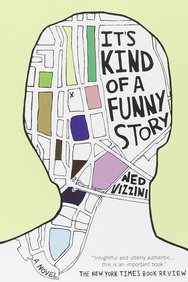 A fun, “light” read. It’s Kind of a Funny Story is a true tale of a teenage boy who contemplates suicide and winds up on an inpatient psychiatric unit. He becomes close with the other patients including a transsexual sex addict, a girl who cut her face with scissors, and the self-elected President Armelio. Much of this book brought back my own fond memories of working at Cincinnati Children’s Psychiatric Hospital. If you enjoy the book, you might also like the movie. One of my favorite scenes is when the main character is participating in music therapy and begins singing Queen’s Under Pressure.
A fun, “light” read. It’s Kind of a Funny Story is a true tale of a teenage boy who contemplates suicide and winds up on an inpatient psychiatric unit. He becomes close with the other patients including a transsexual sex addict, a girl who cut her face with scissors, and the self-elected President Armelio. Much of this book brought back my own fond memories of working at Cincinnati Children’s Psychiatric Hospital. If you enjoy the book, you might also like the movie. One of my favorite scenes is when the main character is participating in music therapy and begins singing Queen’s Under Pressure.
On Depression
By Nassir Ghaemi
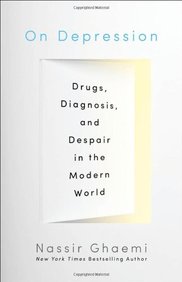 In his book On Depressions: Drugs, Diagnosis, and Despair in the Modern World, Nassir Ghaemi beautifully weaves history, philosophy, and medicine. He pulls from great thinkers such as Viktor Frankl, Rollo May, Karl Jaspers, and Leston Havens and discusses the great achievements that have arisen from suffering. Nassir Ghaemi ultimately asserts that understanding depression can provide important insights into happiness. This author comes highly recommended, and if you enjoy this book, check out his other insightful book A First-Rate Madness: Uncovering the Links Between Leadership and Mental Illness.
In his book On Depressions: Drugs, Diagnosis, and Despair in the Modern World, Nassir Ghaemi beautifully weaves history, philosophy, and medicine. He pulls from great thinkers such as Viktor Frankl, Rollo May, Karl Jaspers, and Leston Havens and discusses the great achievements that have arisen from suffering. Nassir Ghaemi ultimately asserts that understanding depression can provide important insights into happiness. This author comes highly recommended, and if you enjoy this book, check out his other insightful book A First-Rate Madness: Uncovering the Links Between Leadership and Mental Illness.
The Neuroscience of Psychotherapy
By Louis Cozolino
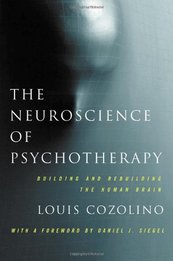 How many times have your patients doubted the efficacy of psychotherapy? The Neuroscience of Psychotherapy provides a brief and easily understood introduction to the neurobiology of mental illness. Louis Cozolino elegantly argues that psychotherapy (from psychoanalysis to CBT) enhances and changes important neural circuitry in the brain. I found that this book offered me short explanations that I have used repeatedly to encourage my most skeptical patients to engage in psychotherapy.
How many times have your patients doubted the efficacy of psychotherapy? The Neuroscience of Psychotherapy provides a brief and easily understood introduction to the neurobiology of mental illness. Louis Cozolino elegantly argues that psychotherapy (from psychoanalysis to CBT) enhances and changes important neural circuitry in the brain. I found that this book offered me short explanations that I have used repeatedly to encourage my most skeptical patients to engage in psychotherapy.
Anatomy of an Epidemic
By Robert Whitaker
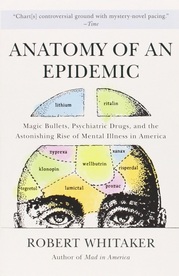 Anatomy of an Epidemic is not for the faint of heart. Robert Whitaker wonders. “Why has the number of disabled mentally ill in the United States tripled over the past two decades?” At times, Whitaker comes off as anti-psychiatry and as you may have guessed the Citizens Commission on Human Rights (#HowIsThisStillaThing) has used his research for their propaganda. I still think it is important to read and understand the controversy that exists around our field. We are by no means perfect, and Anatomy of an Epidemic raises some interesting questions. Be prepared to be riled up.
Anatomy of an Epidemic is not for the faint of heart. Robert Whitaker wonders. “Why has the number of disabled mentally ill in the United States tripled over the past two decades?” At times, Whitaker comes off as anti-psychiatry and as you may have guessed the Citizens Commission on Human Rights (#HowIsThisStillaThing) has used his research for their propaganda. I still think it is important to read and understand the controversy that exists around our field. We are by no means perfect, and Anatomy of an Epidemic raises some interesting questions. Be prepared to be riled up.
What Every Body is Saying
By Joe Navarro
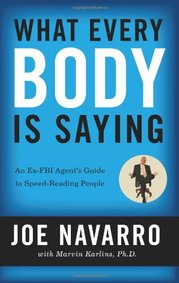 Okay, okay, okay. I know. This is a cheesy one, but I must say that this was one of those books that I’ve never forgotten about.What Every Body is Saying is written by an Ex-FBI Agent and provides a quick and practical guide to speed-reading people’s body language. Joe Navarro explains simple observations that lead to a better understanding of your patients (and need I say friends and family). Why wasn’t I taught this stuff when I was studying psychiatry? In one word, fun.
Okay, okay, okay. I know. This is a cheesy one, but I must say that this was one of those books that I’ve never forgotten about.What Every Body is Saying is written by an Ex-FBI Agent and provides a quick and practical guide to speed-reading people’s body language. Joe Navarro explains simple observations that lead to a better understanding of your patients (and need I say friends and family). Why wasn’t I taught this stuff when I was studying psychiatry? In one word, fun.
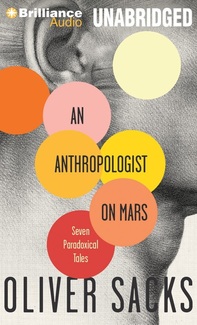
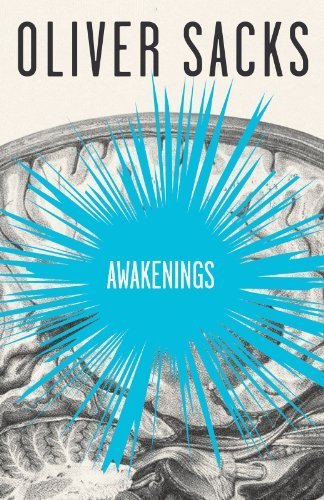
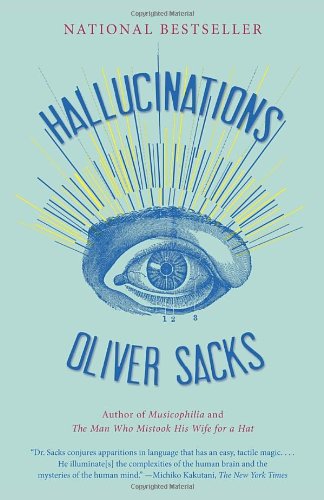
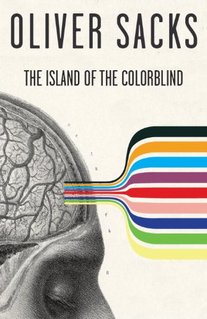
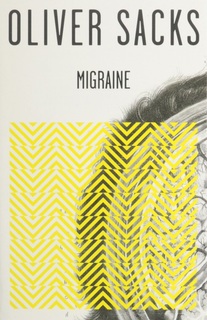
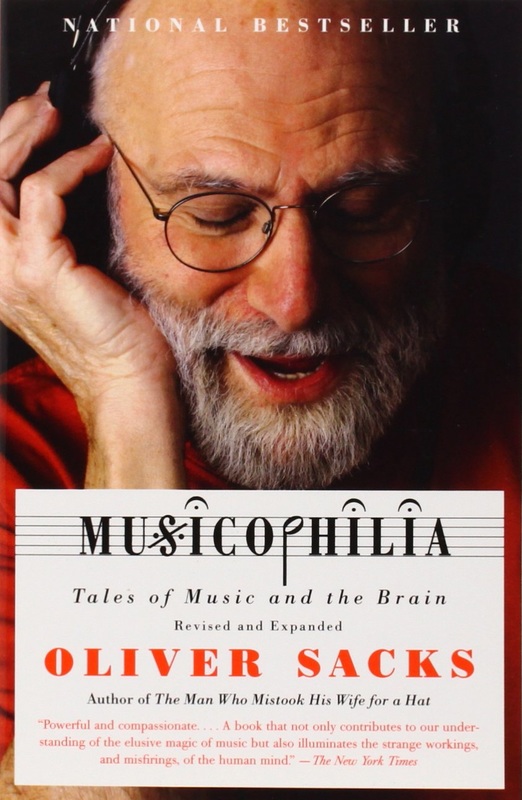
0 Comments on "10 Books Psychiatric Clinicians Will Love"